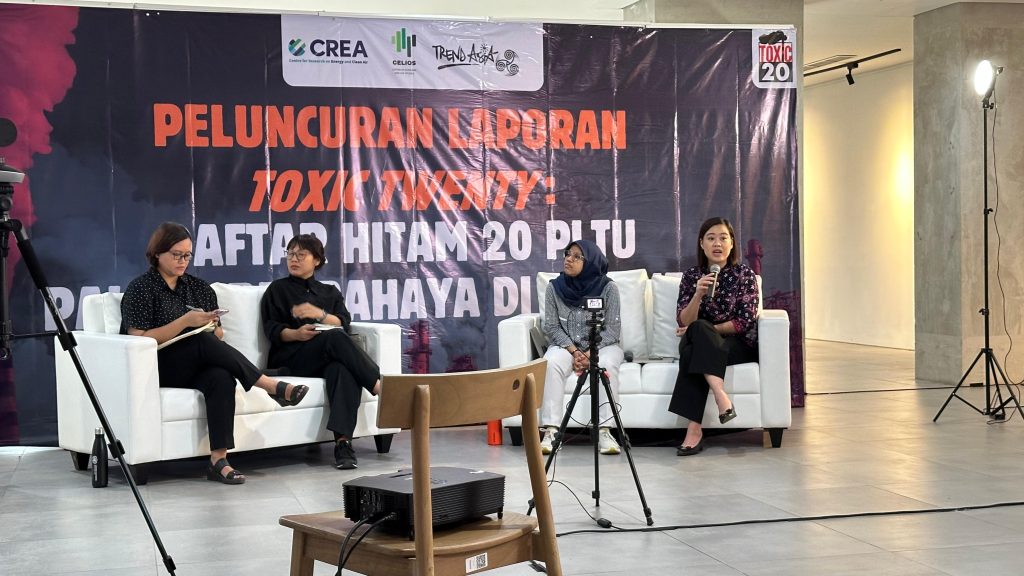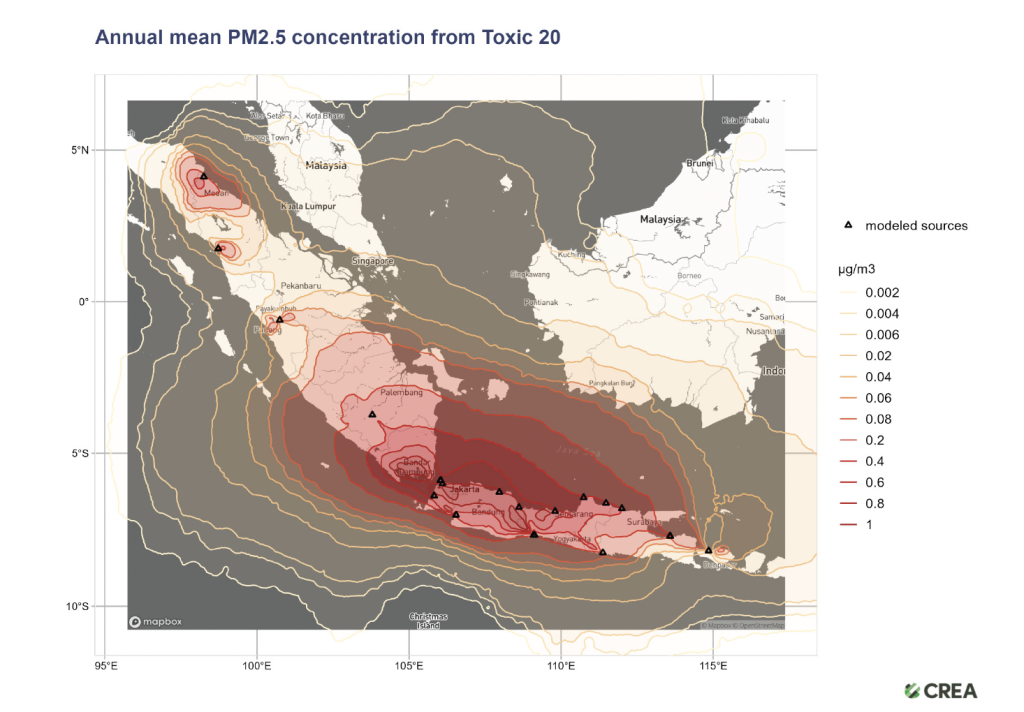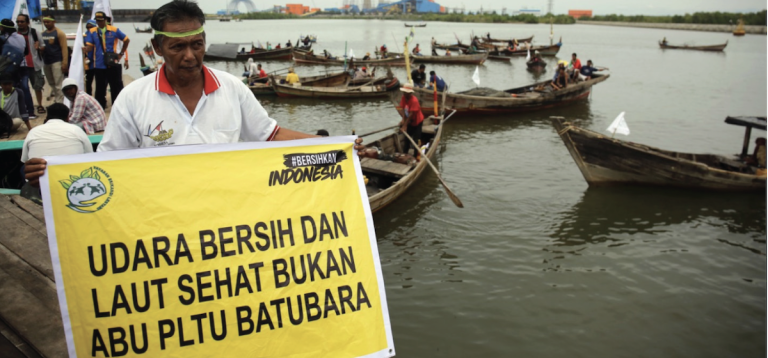
Jakarta — A new joint study by the Centre for Research on Energy and Clean Air (CREA), the Centre of Economic and Law Studies (CELIOS), and Trend Asia has identified Indonesia’s 20 most toxic coal-fired power plants, warning that continued operation of these facilities could cause premature deaths and economic losses exceeding USD 109 billion (IDR 1,813 trillion) between 2026 and 2050.
The report, titled “Toxic Twenty: Unmasking Indonesia’s Most Toxic Coal-Fired Power Plants,” calculates the health burden of pollution from the 20 dirtiest coal plants—located mainly in Java, Sumatra, and Bali—linking their emissions to diseases such as stroke, ischemic heart disease, chronic obstructive pulmonary disease (COPD), lung cancer, and diabetes. CREA’s modelling projects 156,000 premature deaths and 64 million workdays lost due to illness during the plants’ remaining operational years.
Annual economic losses from these plants amount to IDR 52.4 trillion, while household incomes are reduced by IDR 48.4 trillion. The pollution has also cost Indonesia an estimated 1.45 million jobs, mostly in agriculture, fisheries, and plantation sectors, where environmental degradation directly impacts livelihoods.
The study ranks Banten’s Suralaya coal complex as Indonesia’s most polluting power plant, followed by Paiton in East Java, Cirebon in West Java, and Tanjung Jati B in Central Java. These plants collectively emit high levels of fine particulate matter (PM2.5), sulfur dioxide (SO₂), and nitrogen oxides (NOₓ), which contribute to dangerous smog levels. The report found that emissions from the Toxic Twenty alone raise ambient PM2.5 concentrations by up to 1 µg/m³ annually, with daily peaks surpassing World Health Organization (WHO) safety limits.

A policy gap between promises and reality
The findings come as President Prabowo Subianto reiterates his ambition for Indonesia to achieve 100 per cent renewable energy within a decade. However, researchers warned of a widening gap between policy commitments and action. Despite the 2022 presidential regulation on energy transition and a moratorium on new coal plants after 2023, the early retirement of existing coal facilities remains voluntary and dependent on financing rather than climate accountability.
“The government still treats coal plant retirement as a fiscal loss, while in reality, it should be seen as a long-term social and ecological investment,” said CELIOS researcher Atina Rizqiana during the launch event at Taman Ismail Marzuki, Jakarta, on Tuesday, November 4. CREA analyst Katherine Hasan added that Indonesia’s current emissions standards remain “far too lenient,” allowing toxic pollutants to spread across provinces and even beyond national borders.
International financing under scrutiny
The report traced the financial networks behind the Toxic Twenty, showing that many of these plants rely on foreign financing, particularly from Japan, China, and South Korea. The authors urged lenders and investors to withdraw funding from polluting projects and redirect capital toward renewable energy development.
The report, available at https://toxic20.org, calls on the government and state utility PLN to prioritise the decommissioning of these plants as part of a just energy transition under Indonesia’s Just Energy Transition Partnership (JETP) framework.
“The retirement of these coal plants is not a loss—it’s an investment in public health, justice, and sustainability,” said Novita Indri, Trend Asia’s energy campaigner. (nsh)
Banner photo: The community and fishermen of Pangkalan Susu, North Sumatra, together with the Srikandi Lestari Foundation, the #BersihkanIndonesia movement and other environmental activists, held a creative demonstration urging the government to close the Pangkalan Susu coal-fired power plant. Saturday, 22 June 2019. Source: Trend Asia















